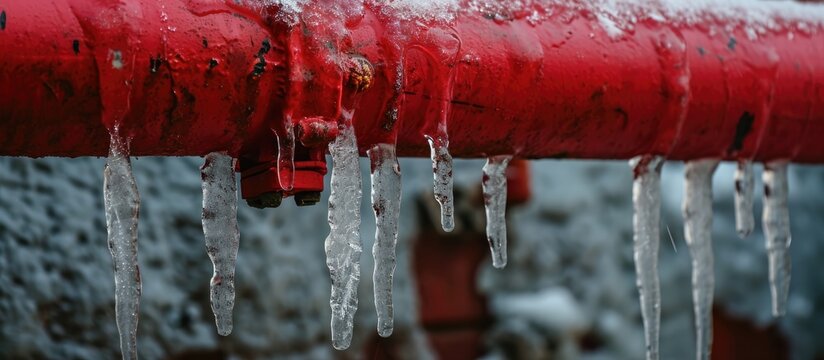Important Tips for Avoiding Frozen Pipes in Winter Seasons
Important Tips for Avoiding Frozen Pipes in Winter Seasons
Blog Article
Listed here on the next paragraphs you can locate more extremely good points relating to How to Prevent Your Pipes From Freezing.

Cold weather can damage your pipes, especially by freezing pipelines. Right here's just how to avoid it from taking place and what to do if it does.
Introduction
As temperature levels drop, the danger of icy pipes boosts, possibly leading to expensive fixings and water damage. Comprehending just how to prevent frozen pipes is vital for homeowners in cold environments.
Prevention Tips
Shielding susceptible pipelines
Wrap pipelines in insulation sleeves or make use of heat tape to shield them from freezing temperature levels. Concentrate on pipes in unheated or exterior areas of the home.
Home heating strategies
Maintain indoor areas effectively heated up, especially locations with pipes. Open up cabinet doors to allow warm air to circulate around pipes under sinks.
Exactly how to determine frozen pipes
Search for decreased water flow from faucets, unusual smells or sounds from pipelines, and visible frost on subjected pipes.
Long-Term Solutions
Structural adjustments
Take into consideration rerouting pipelines away from exterior wall surfaces or unheated locations. Add extra insulation to attic rooms, basements, and crawl spaces.
Upgrading insulation
Buy high-grade insulation for pipes, attics, and wall surfaces. Proper insulation aids preserve consistent temperature levels and decreases the threat of frozen pipelines.
Securing Outdoor Pipes
Yard pipes and exterior faucets
Detach and drain pipes yard hoses before wintertime. Mount frost-proof faucets or cover outdoor faucets with insulated caps.
Comprehending Icy Pipelines
What triggers pipelines to ice up?
Pipelines ice up when revealed to temperature levels listed below 32 ° F (0 ° C) for expanded durations. As water inside the pipelines freezes, it increases, taxing the pipe walls and potentially triggering them to rupture.
Risks and damages
Frozen pipes can cause water disturbances, building damage, and costly fixings. Burst pipes can flood homes and cause comprehensive architectural damage.
Indications of Frozen Water Lines
Recognizing icy pipelines early can avoid them from rupturing.
What to Do If Your Pipes Freeze
Immediate actions to take
If you suspect icy pipelines, keep faucets open to relieve stress as the ice thaws. Use a hairdryer or towels soaked in warm water to thaw pipes slowly.
Verdict
Protecting against frozen pipes needs proactive actions and quick feedbacks. By understanding the causes, indications, and safety nets, homeowners can protect their plumbing during cold weather.
6 Proven Ways to Prevent Frozen Pipes and Protect Your Home
Disconnect and Drain Garden Hoses
Before winter arrives, start by disconnecting your garden hoses and draining any remaining water. Close the shut-off valves that supply outdoor hose bibs and leave the outdoor faucet open to allow any residual water to drain. For extra protection, consider using faucet covers throughout the colder months. It’s also important to drain water from any sprinkler supply lines following the manufacturer’s directions.
Insulate Exposed Pipes
Insulating your pipes is an effective way to prevent freezing. Pipe insulation is readily available at home improvement stores and is relatively inexpensive. Pay close attention to pipes in unheated areas such as the attic, basement, crawl spaces, or garage. Apply foam insulation generously to create a buffer against the cold. You can also wrap your pipes in heat tape or thermostat-controlled heat cables for added warmth.
Seal Air Leaks
Inspect your home for any cracks or openings that could let in cold air. Seal any holes around the piping in interior or exterior walls, as well as the sill plates where your home rests on its foundation. Additionally, make sure to keep your garage door closed unless you’re entering or exiting. Leaving it open creates a significant air leak that can lead to frozen pipes.
Allow Warm Air Circulation
During cold snaps, it’s essential to allow warm air to circulate evenly throughout your home. Leave interior doors ajar to promote better airflow. Open kitchen and bathroom cabinets to help distribute heat consistently around the rooms. If you have small children or pets, be sure to remove any household chemicals or potentially harmful cleaners from open cabinets for safety.
Let Faucets Drip
A small trickle of water can make a big difference in preventing ice formation inside your pipes. When temperatures drop significantly, start a drip of water from all faucets served by exposed pipes. This continuous flow helps prevent the water from freezing. Additionally, running a few faucets slightly can relieve pressure inside the pipes, reducing the chances of a rupture if the water inside does freeze.
https://choateshvac.com/6-proven-ways-to-prevent-frozen-pipes-and-protect-your-home/

Hopefully you liked our post on Winter Plumbing Precautions: Preventing Frozen Pipes. Thanks for taking the time to read through our posting. If you please take the opportunity to distribute this article if you liked it. Thank you for your time invested reading it.
Booking Page Report this page